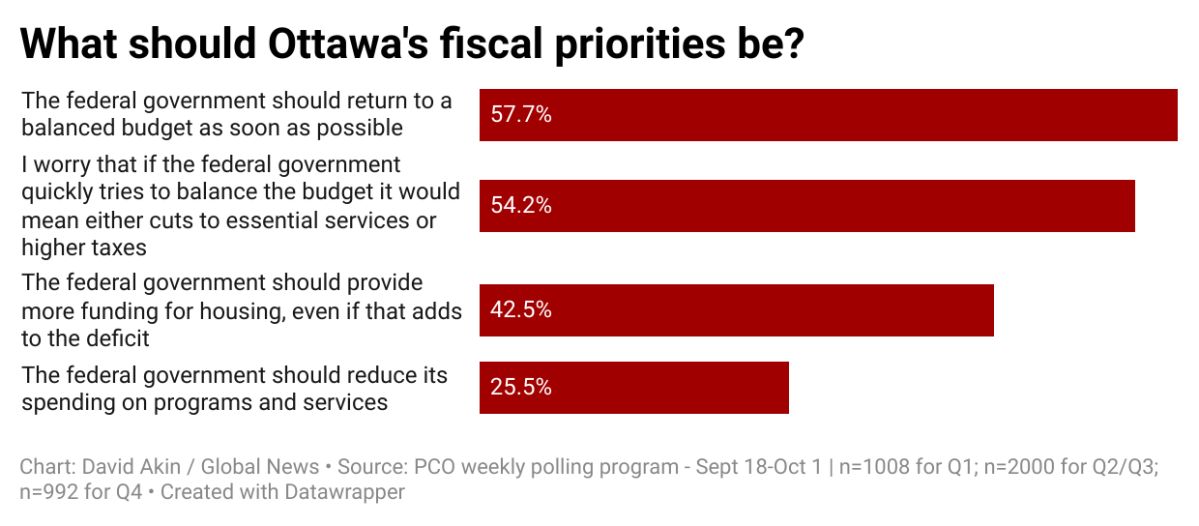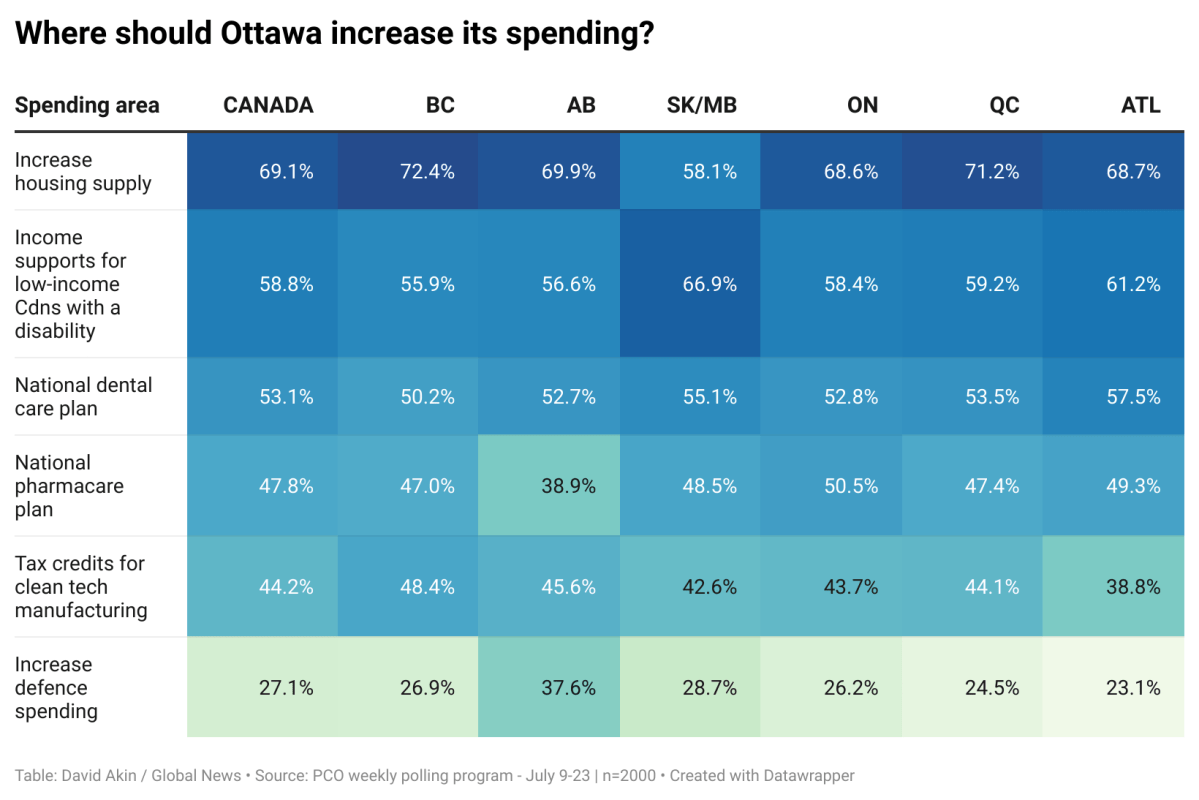Finance Minister Chyrstia Freeland will not present the 2024 budget until early spring but as early as last July the federal government has been actively seeking input from Canadians on that budget’s major themes.

Indeed, internal government polls obtained by Global News, from July through to the beginning of October, found nearly 60 per cent of Canadians believe Ottawa should balance the budget.
And yet the government’s internal polling found barely one in four say the government should reduce overall spending. And the polling showed strong support — 42.5 per cent — to increase spending on housing even if that means rising deficits.
The results add up to a complex political picture for Deputy Prime Minister and Finance Minister Chrystia Freeland, who must respond to apparently contradictory desires of an electorate that seems to value current levels of government spending — spending which has exceeded revenues every year the Trudeau Liberals have been in office — yet wishes a return to balanced budget, something that would be possible only with tax increases, spending cuts or a combination of both.
Sure enough, the government polled on that last point and found 54 per cent of respondents agreed with the statement; “I worry that if the federal government quickly tries to balance the budget it would mean either cuts to essential services or higher taxes.”
Opposition leader Pierre Poilievre has vowed to balance the budget if the Conservatives win office though he has yet to provide details as to how that would be achieved.
A hint as to which way Freeland is leaning may have come in the 2023 Fall Economic Statement. Despite pressure from cabinet colleagues and others in her caucus to increase spending, Freeland did not announce any new major spending programs and provided a five-year forecast in which the deficit is continually reduced over the five-year forecast timeframe used by Finance Canada. Freeland would have seen the internal polls only recently released to Global News prior to the tabling of that Fall Economic Statement.

Get breaking National news
The polls obtained by Global News also show strong approval for boosting income support programs for low-income Canadians with disabilities as well as for the national dental care program, a key demand of the NDP in the supply-and-confidence agreement that party signed with Prime Minister Justin Trudeau’s minority Liberal government.
Meanwhile, even though the country’s admirals and generals have been loudly warning that Canada’s armed forces do not have the equipment or personnel to fulfill the missions appointed to them, the government’s internal polls show there are low levels of support for increasing defence spending.
The polling data was obtained by Global News through federal Access-to-Information laws. The data is from the weekly polling program conducted by the Privy Council Office, the bureaucratic arm of the Prime Minister’s Office.
The topics and questions of each weekly poll are routinely vetted by the prime minister’s top political advisers and results are circulated to the PM, his advisers, all cabinet ministers and all deputy ministers.
Each week, the PCO surveys 1,000 Canadians on a range of issues using live-agent polling to both landlines and cellphones.
The PCO polling data provided to Global News on spending and budget priorities comes from polling waves done from July 1 through to the end of September.
In addition to the PCO polling program, the Trudeau government is seeking advice on the 2024 budget from more public channels.
It has set up a web site — LetsTalkBudget2024.ca — where Canadians can provide some input on budget priorities. Many of the questions at that web site bear a strong resemblance to the polling questionnaires from late last summer.
The House of Commons finance committee is also in the midst of preparing its report on the pre-budget consultations it did from June to November, hearing from 176 witnesses and taking in more than 800 briefs.
The committee’s report and recommendations are expected to be tabled soon after the House of Commons returns from its Christmas break on Jan. 29.












Comments
Want to discuss? Please read our Commenting Policy first.